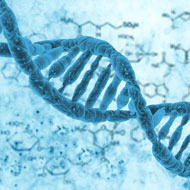Genome project reaches major milestone

Give a Dog a Genome is set to enhance the understanding of canine genetics and inherited diseases in dogs.
A pioneering project to create the UK’s largest canine genome bank has reached its next major milestone.
Launched in January 2016 by the Animal Health Trust, Give a Dog a Genome is set to enhance the understanding of canine genetics and inherited diseases in dogs.
By sequencing the genome of the dog from more than 70 different breeds - and analysing all 2.4 billion letters of DNA - the AHT will learn which genetic variants are neutral and which may have a negative effect on health.
As of 25 May, DNA samples from half of the breeds involved in the project had been collected and sent for sequencing.
Most of these dogs are affected with one of 16 inherited diseases, with epilepsy, progressive retinal atrophy, cataracts, glaucoma, brachycephaly and cancers featuring prominently. The AHT states that these six diseases will act as key research areas for the Give a Dog a Genome project.
“To be this far through the sequencing stage half way through 2017 is fantastic progress,” commented Dr Cathryn Mellersh, head of canine genetics at the AHT.
“There’s been an enormous amount of work, going on behind the scenes at the AHT since we launched Give a Dog a Genome and there is a huge amount of work still to do in terms of processing and analysing the sequencing data we have so far, as well as getting the remaining DNA sample selected and prepared for sequencing.”
She continues: “We hope to have all of the DNA sequenced by the end of the year so that we can really focus on the analysis phase in 2018, and really start to use the genome bank to identify disease mutations.”



 The latest
The latest